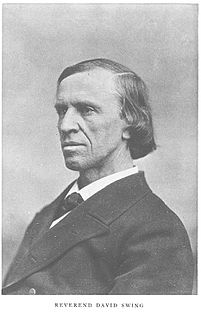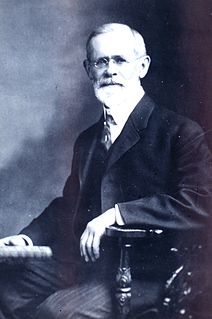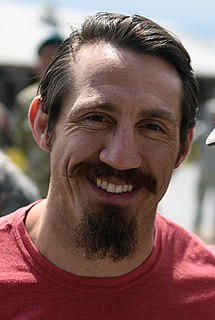A Quote by Jonathan Maberry
'V-Wars' is a head-on collision of real-world science, terrorism, special forces action, ethics, politics and an exploration of what defines us as human.
Related Quotes
The rejection of all abstract formalism. Materialism reminds every science of its real source: the world men transform. No science can, whether in its history or its object, grasp its own origins within itself or constitute itself as a closed world, exhaustively defined by internal rules. Materialism refers every science and every activity to the reality they depend on, even if this dependence is masked by a great many abstract mediations: mathematics as well as logic, aesthetics as well as ethics and politics.
The modern Gamaliel should teach ethics. Ethics is the science of human duty. Arithmetic tells man how to count his money; ethics how he should acquire it, whether by honesty or fraud. Geography is a map of the world; ethics is a beautiful map of duty. This ethics is not Christianity, it is not even religion; but it is the sister of religion, because the path of duty is in full harmony, as to quality and direction, with the path of God.
As a result of reading science fiction when I was eight, I grew up with an interest in music, architecture, city planning, transportation, politics, ethics, aesthetics on any level, art...it's just total! It's a complete commitment to the whole human race on all the Earth. That's what science fiction is about.
In a recent survive of Millennials around the world asking what most defines our identity, the most popular wasn't nationality, ethnicity or religion. It was "citizen of the world." That's a big deal. Every generation expands the circle of people we consider one of us. And in our generation, that now includes the whole world. This is the struggle of our time. The forces of freedom, openness, and global community against the forces of authoritarianism, isolationism, and nationalism - forces for the flow of knowledge, trade, and immigration, against those who would slow them down.
What keeps me up at night in a negative way is, if we don't solve the problems of the human heart and of the human head, of human psychology, there is no technological solution so great that it can prevent the world that is coming, and a world of suitcase bombs or of the ability to pollute the planet in a way that it cannot recover, of global warming and the rest. We've created through science and technology a different world that has frightening sides to it, and psychology and behavioral science has to be part of this. We're going to have to find a way to humanize the culture itself.
The question is wholly other, deeper and equally relevant to all: whether we shall, by whatever means, succeed in reconstituting the natural world as the true terrain of politics, rehabilitating the personal experience of human beings as the initial measure of things, placing morality above politics and responsibility above our desires, in making human community meaningful, in returning content to human speech, in reconstituting, as the focus of all social action, the autonomous, integral, and dignified human "I."



































